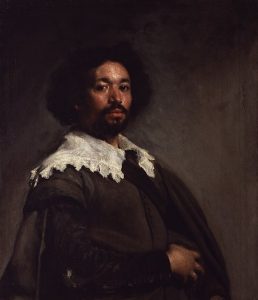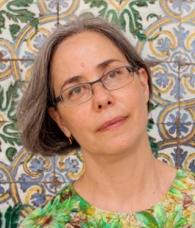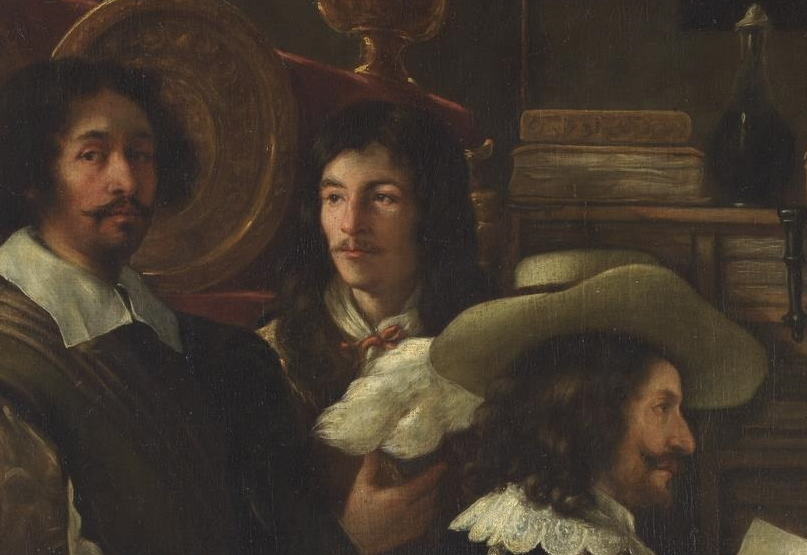Public Lecture by
“Picturing the Emergence of the Emancipatory Subject and the Formation of the Black Nation in Seventeenth-Century Spain”
Tuesday, February 14th at 5 pm
Cochrane Woods Art Center, room 157
5540 South Greenwood Avenue
 The Afro-Hispanic “Black but Human” topos will serve as a lens through which I explore the ways in which certain early modern visual representation of slavery both embody and reproduce hegemonic visions of subaltern groups and at the same time provide material for critical and emancipatory practices by the Afro-Hispanic enslaved and freed slaves themselves in Habsburg Spain. My paper will argue that deep ethnic prejudices against this sector of the population in the crowns of Castile and Aragón did not prevent the emergence of the ‘Afro-Hispanic subject’ in the visual form. I will focus on the extraordinary seventeenth-century case of the portrait of the slave Juan de Pareja by his celebrated slave owner, Diego Velázquez and the self-portrait of freedman Juan de Pareja in his painting The Calling of St Matthew. This paper will explore the ways in which the Black but Human proverb written in work songs by Afro-Hispanics in early modern Spain, codifies the multilayered processes through which a ‘black nation’ forges a collective resistance and the ways in which the emancipatory subject is articulated in Pareja’s 3-metre long masterpiece (1661) for the Habsburg court in Madrid (in show now for one year at the Prado Museum, Spain).
The Afro-Hispanic “Black but Human” topos will serve as a lens through which I explore the ways in which certain early modern visual representation of slavery both embody and reproduce hegemonic visions of subaltern groups and at the same time provide material for critical and emancipatory practices by the Afro-Hispanic enslaved and freed slaves themselves in Habsburg Spain. My paper will argue that deep ethnic prejudices against this sector of the population in the crowns of Castile and Aragón did not prevent the emergence of the ‘Afro-Hispanic subject’ in the visual form. I will focus on the extraordinary seventeenth-century case of the portrait of the slave Juan de Pareja by his celebrated slave owner, Diego Velázquez and the self-portrait of freedman Juan de Pareja in his painting The Calling of St Matthew. This paper will explore the ways in which the Black but Human proverb written in work songs by Afro-Hispanics in early modern Spain, codifies the multilayered processes through which a ‘black nation’ forges a collective resistance and the ways in which the emancipatory subject is articulated in Pareja’s 3-metre long masterpiece (1661) for the Habsburg court in Madrid (in show now for one year at the Prado Museum, Spain).
 Trained originally in Italian art history of the early modern period, Carmen Fracchia is now a specialist in Spanish visual studies, with particular interest in relations between the Spanish visual form of the sixteenth and seventeenth centuries and the formation of the Spanish Empire. She is also interested in the interface between visual studies and discourses on slavery, human diversity and intellectual thought in early modern Spain. Dr. Fracchia’s current research focuses on the overlooked area of the complex specificity of slave subjectivity in the visual form between the late fifteenth- and the eighteenth centuries in Spain and New Spain.
Trained originally in Italian art history of the early modern period, Carmen Fracchia is now a specialist in Spanish visual studies, with particular interest in relations between the Spanish visual form of the sixteenth and seventeenth centuries and the formation of the Spanish Empire. She is also interested in the interface between visual studies and discourses on slavery, human diversity and intellectual thought in early modern Spain. Dr. Fracchia’s current research focuses on the overlooked area of the complex specificity of slave subjectivity in the visual form between the late fifteenth- and the eighteenth centuries in Spain and New Spain.
Persons with a disability who believe they need assistance are invited to contact Emily at lordfransee@uchicago.edu
